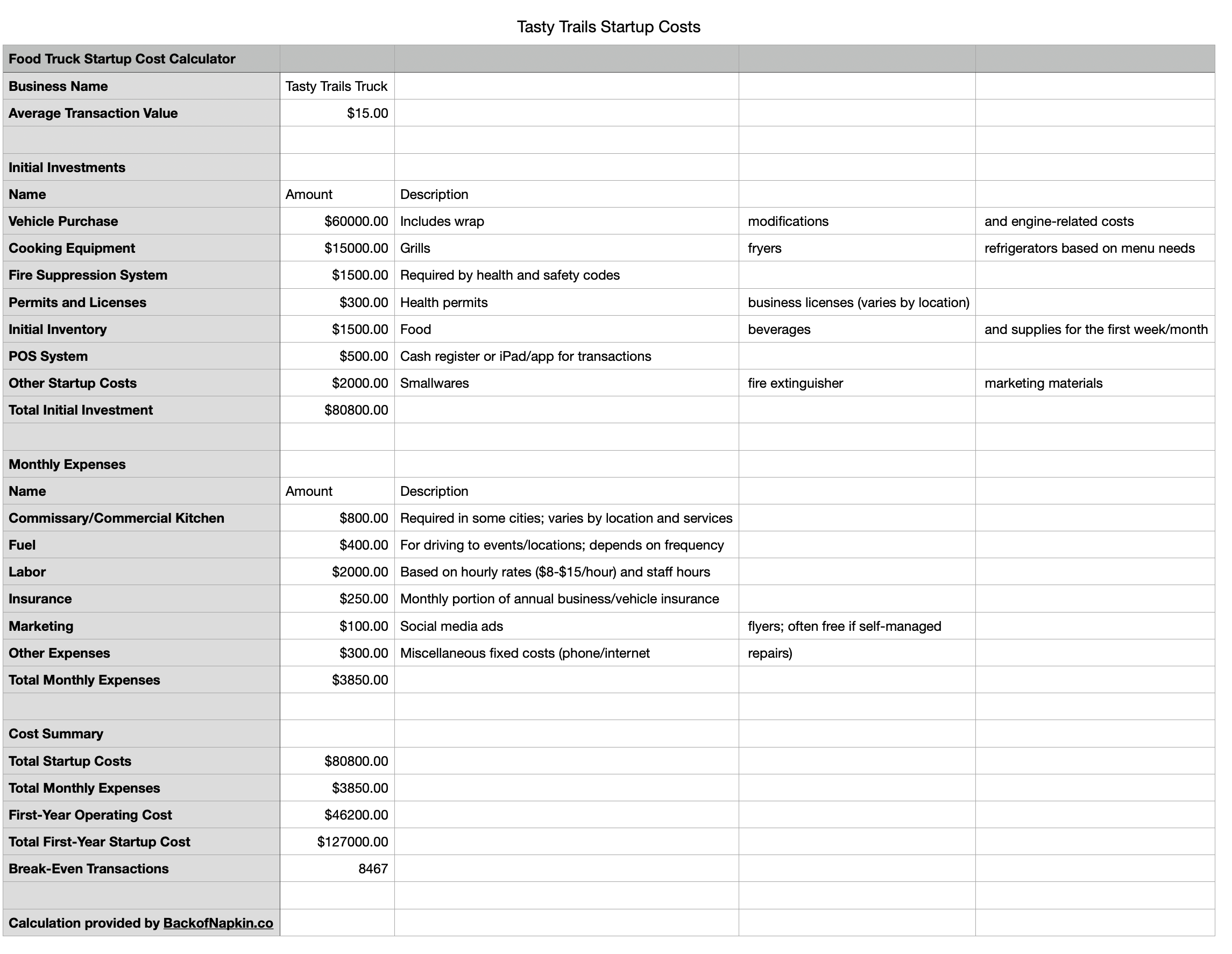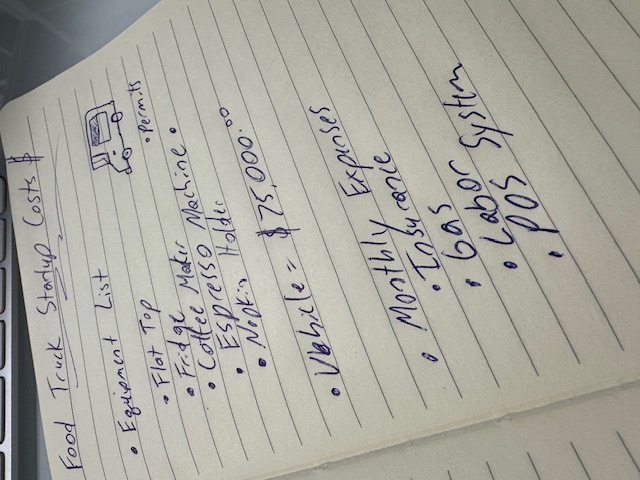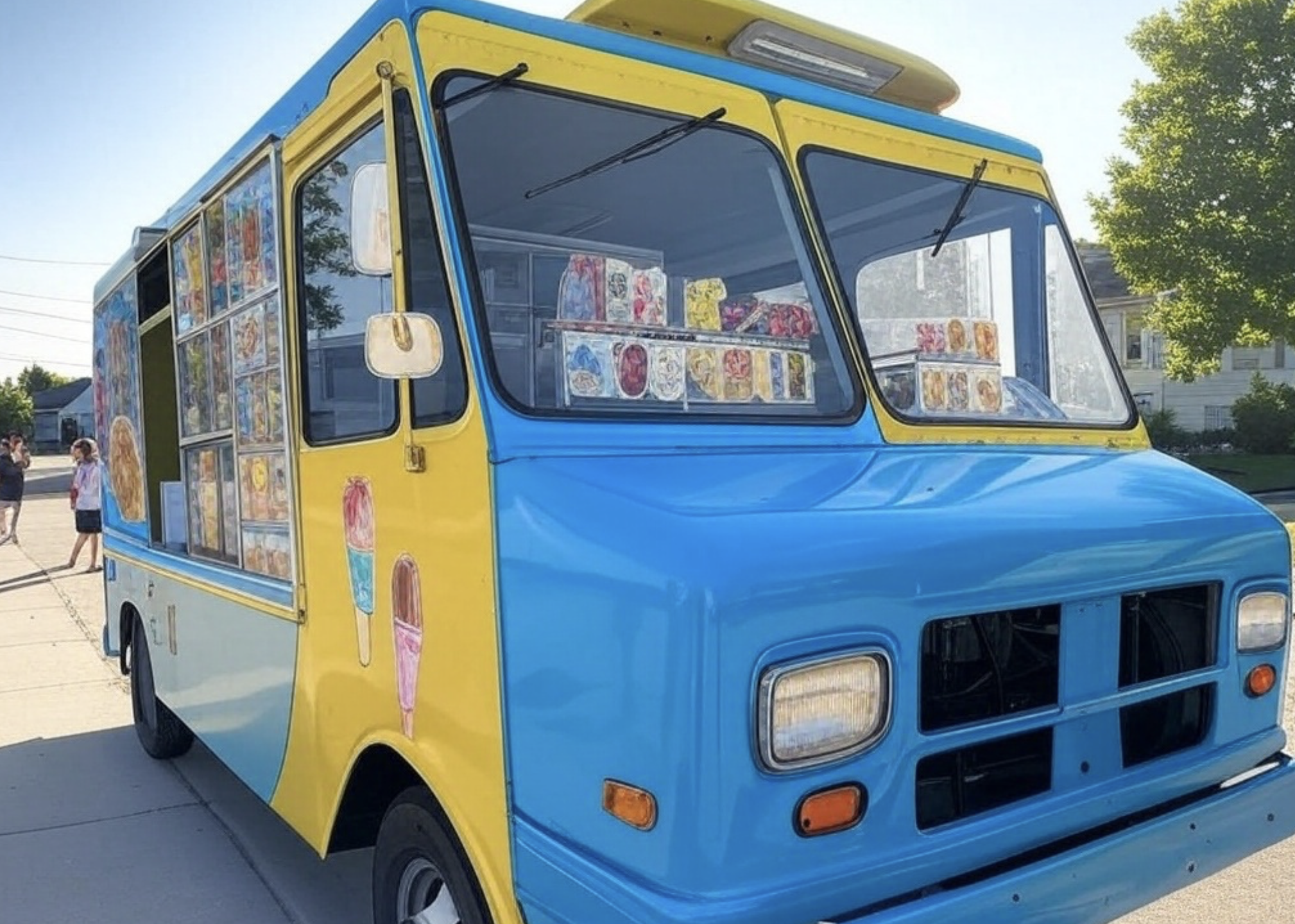Food Truck Startup Cost Calculator: Estimate Your Business Expenses
This calculator helps you estimate the initial investment and ongoing expenses for your food truck business. Enter your expected costs for vehicle purchase, equipment, permits, and monthly expenses to get a comprehensive breakdown of your startup budget.
Business Information
This is the average amount a customer spends per transaction
Initial Investments
One-time upfront costs to start your food truck business.
Fixed Monthly Expenses
Recurring monthly operational costs that don't vary with sales volume.
Tasty Trails Truck Startup Cost Summary
Total Startup Costs
$0
This is the total one-time cost to launch your food truck.
Total Monthly Expenses
$0/month
This is your recurring monthly overhead to keep the truck running.
First-Year Operating Cost
$0
This is your estimated operating cost for the first year (excluding initial investment).
Total First-Year Startup Cost
$0
This is the total amount you'll need to fund your food truck for Year 1.
Break-Even Analysis
You'll need to make 0 transactions to break even based on your Year 1 expenses.
Based on an average transaction value of $15.
How to Use the Food Truck Startup Cost Calculator
This calculator helps aspiring food truck entrepreneurs understand the financial aspects of starting and operating a mobile food business. Whether you're planning your first food truck, evaluating expansion opportunities, or just curious about how much funding you'll need to get started, this calculator provides comprehensive cost projections.
After entering your expected investments and monthly expenses, you can download the data as a CSV file to include in your business plan or share with potential investors.
Step 1: Enter Your Food Truck Business Details
Begin by entering basic information for your food truck business:
- Name of your food truck
- Average transaction value (what a typical customer spends)
- Initial investments like vehicle purchase, equipment, and permits
- Monthly expenses such as commissary fees, fuel, and labor
The more accurate your inputs, the more reliable your financial projections will be. Take time to research typical costs in your area, and get multiple quotes for major expenses like vehicle purchases and cooking equipment.
Step 2: Add Initial Investments
Input your one-time startup costs. Be as detailed as possible when writing out this list so you can be as accurate as possible with startup cost.
- Vehicle purchase (truck or trailer)
- Cooking equipment (grills, fryers, refrigeration)
- Fire suppression system (required by most health departments)
- Permits and licenses (varies by location)
- Initial inventory (food supplies and ingredients)
- POS system or iPad (for taking payments)
- Other startup expenses (marketing, smallwares, pots, pans, ladles, etc.)
The calculator comes pre-loaded with typical costs, but you should adjust these based on your specific business concept and local market conditions. For example, a burger truck will require a totally difference equipment list than an ice cream truck. You can add or remove items as needed.

Step 3: Enter Monthly Fixed Expenses
Specify your recurring monthly operational costs:
- Commissary or commercial kitchen rental
- Fuel for driving to locations and events
- Labor costs for employees
- Insurance (business and vehicle)
- Marketing expenses
- Other fixed monthly expenses
The Myth of the "Cheap" Food Truck Business
Food trucks are often advertised as a cheap way to start a business since you don't need to sign a long-term lease agreement. But if you're planning to get into the food truck business solely for the reason of low startup cost, think again. The initial investment and ongoing monthly costs are significant and can quickly ratchet up to $50,000 - $100,000 or more.
"Bottom line, don't start a food truck just because it's 'cheap.' Sure, you'll be able to get into this type of business for less than you could a brick-and-mortar restaurant location, but it's still not a low cost business."
Food Truck VS Trailer: Considerations
Awe, the great food truck vs trailer debate. If you want to save money, the simplest way to do it is to buy a food trailer or cart instead of a food truck. With a food trailer, you can expect to invest $20,000 - $60,000 depending on equipment and wrap. With a small food cart, you might be able to get started for less than $30,000 depending on your menu.
With either of these options, you don't get an engine, which cuts down the total cost to get started. But keep in mind, you'll still need a way to pull the trailer if you go this route. If you don't own a truck already, you could end up spending about the same amount get started either way since you'll need to pull the mobile food unit.
On the flip side, you may not need to move around that much if you plan to serve food at a food truck park or pod and plan to be staionary. The truck vs trailer debate really boils down to your personal needs.
Creating Your Comprehensive Equipment List
The next step is to write down the list of cooking equipment you'll need to make your menu. This may become longer than you expected. Sit down and think about each piece of equipment you'll need for every dish. Then figure out how much each piece is going to cost.
Every food truck requires different equipment. If you're starting a coffee truck, you'll need an espresso machine, coffee grinders, refrigerator, and coffee maker onboard. If you want to open a French fry truck, you'll need deep fryers. If you're selling burgers, you'll need a grill. Write this down and add up the cost to get the most precise estimate of startup cost possible.

Before finalizing your budget using this calculator, contact your local health department, fire marshal, and business licensing office to get a comprehensive list of requirements for your specific location and food concept, then add these essential items to your investment list to ensure a legally compliant operation. Some areas may also mandate commissary usage, particular waste disposal methods, or specialized equipment certifications. Failure to comply with these regulations can result in failed inspections, fines, or even being prohibited from operating.
Calculating Your Break-Even Point
After you get the cost estimate figured out, you'll have a clear understanding of how much you'll need to make to cover your expenses. Use this calculator to determine exactly how many sales you'll need to make monthly to cover the bills, then take time to figure out if that volume of sales is realistic.
Here's a simple way to think about how much revenue you'll need to make to cover your expenses:
For example: $15 average transaction × 500 transactions per month = $7,500 in gross revenue.
Based on a rough profit margin of 33%, your profit would be approximately $2,475. Conduct your own analysis to estimate whether or not you'll be able to cover your monthly expenditures including commissary fees, insurance, fuel, and loan payments.
Variable Expenses You Need to Know About
There are all sorts of variable expenses to understand before becoming a food truck owner. These costs will differ depending on where you live and plan to operate the business. Here are some items to understand when trying to figure out how much it will cost to open your business:
| Expense Category | Cost Range | Notes |
|---|---|---|
| Permit Cost | $100 - $5,000+ | Varies dramatically by location. NYC can be as high as $289,500 per year for premium spots! |
| Commissary/Commercial Kitchen | $400 - $1,500/month | Depends on location and services provided. |
| Insurance | $2,000 - $5,000/year | Need both business and vehicle insurance. |
| Fuel | $200 - $500/month | Varies based on frequency of travel. |
| Labor | $16 - $22/hour per employee | Depends on number of staff and hours of operation. |
| Food Truck Rental (if not buying) | $3,000 - $5,000/month | Usually more expensive than buying long-term. |

Example: Typical Food Truck Startup Costs
Food Truck Startup Cost Example
Initial Investments
- Food Truck + Wrap & Equipment: $60,000
- Initial Product Inventory: $1,500
- Permits and Licenses: $300
- Website: $1,000
- POS System: $500
- Uniforms/T-Shirts: $500
- Paper Products: $250
- Smallwares (Pots, Pans, etc.): $1,500
- Fire Extinguisher: $200
- Misc. Expenses: $1,000
Total Initial Investment: $66,750
Monthly Fixed Expenses
- Commissary/Commercial Kitchen: $800
- Phone/Internet: $150
- Fuel: $500
- Labor (1 part-time employee): $1,200
- Insurance (monthly portion): $250
- Repairs Buffer: $200
- Marketing: $100
Total Monthly Expenses: $3,200
Projection Results
Costs Summary
- Total Startup Costs: $66,750
- Monthly Expenses: $3,200
- First-Year Operating Cost: $38,400
- Total First-Year Cost: $105,150
Break-Even Analysis
- Average Transaction Value: $15
- Profit Margin: 33%
- Transactions Needed to Break Even: 7,010
- Monthly Transactions Needed: 584
The example above shows typical costs for a mid-range food truck startup. As you can see, the total first-year cost reaches over $100,000, which is why it's so important to have a clear financial plan before starting. The costs can range even higher for premium equipment or lower for a more basic setup or food trailer.
Notice in the break-even analysis that with an average transaction value of $15 and a profit margin of 33%, you would need to make 7,010 sales in your first year (or about 584 per month) to break even. This is a useful metric to help you evaluate whether your business concept is viable and the number of sales you'll need to aim for.
How to Pay for a Food Truck Business
After you get the cost estimate figured out using this calculator, you'll have a clear understanding of how much funding you'll need. Some of you will have enough savings to cover the costs, but for the majority of aspiring food truck owners, you'll probably need some type of financing.
Fortunately, you can usually get a low-interest loan on a food truck similar to the way you can get an automobile loan, assuming you have a good credit score. Other common ways to fund a mobile food business include:
- Small business loans (SBA loans)
- Cashing out retirement accounts like 401Ks (consider tax implications)
- Credit cards (higher interest, but more accessible)
- Crowdfunding campaigns like Kickstarter or GoFundMe
- Investors, partners, or family members with money
- Equipment financing
The key is to use the calculator to determine exactly how much funding you'll need then create a realistic plan to secure that funding. None of this is financial advice. I'm just listing the sources many other food truck owners I've spoke with have used to open a food truck business.

How the Food Truck Startup Cost Calculator Works
The math behind this calculator is straightforward. The most important part is making sure you get a detailed list of equipment and other startup costs for accuracy.
Core Financial Calculations
| Metric | Formula | Example |
|---|---|---|
| Total Startup Costs | Sum of all initial investments | $60,000 (vehicle) + $15,000 (equipment) + $1,500 (fire suppression) + $300 (permits) + $1,500 (inventory) + $500 (POS) + $2,000 (other) = $80,800 |
| Total Monthly Expenses | Sum of all monthly fixed expenses | $800 (commissary) + $400 (fuel) + $2,000 (labor) + $250 (insurance) + $100 (marketing) + $300 (other) = $3,850 |
| First-Year Operating Cost | Total Monthly Expenses × 12 | $3,850 × 12 = $46,200 |
| Total First-Year Cost | Total Startup Costs + First-Year Operating Cost | $80,800 + $46,200 = $127,000 |
| Break-Even Transactions | Total First-Year Cost ÷ Average Transaction Value | $127,000 ÷ $15 = 8,467 transactions |
Using the Calculator for Business Planning
After you get the cost estimate figured out, I suggest figuring out how many meals you'll need to sell per month to cover the ongoing expenses and loan payments. Here's a simple way to think about how much revenue you'll need to make to cover your expenses and determine if your business will be viable:
Based on a rough profit margin of 33%, your profit would be $2,475. Ask yourself, is this enough profit to cover your living expenses? If not, you may need to adjust your plan. Conduct your own back-of-the-napkin analysis using the calculator's results to estimate whether or not you'll be able to cover your monthly expenditures. Then head on over to the Food Truck Business Revenue Calculator to project earnings / profit for your food business.
For most food truck businesses, the break-even point will take several months if not a few years to reach. You should be prepared to operate at a loss initially while building your customer base and optimizing your operations. It's better to ask yourself these tough questions during the business planning process instead of after when reality smacks you in the face.
All calculated values are projections based on the inputs provided. I suggest downloading the CSV file results and including this information in your food truck business plan. This is a critical step in the food truck startup process.
If you want to see what it's really like operating a food truck business if you've never done it before, check out this free guide titled 16 Lessons: Your First Year on a Food Truck. I partnered with Malcolm Bedell to write this. Malcolm started his first food truck way back in 2014 and now owns a successful restaurant in Maine called The Original Honey's Fried Chicken Palace. This guide will reveal some of the harsh realities and joys of running a food truck business.
